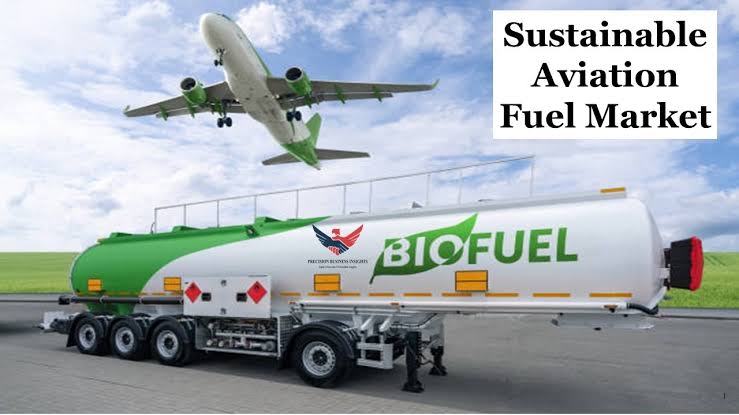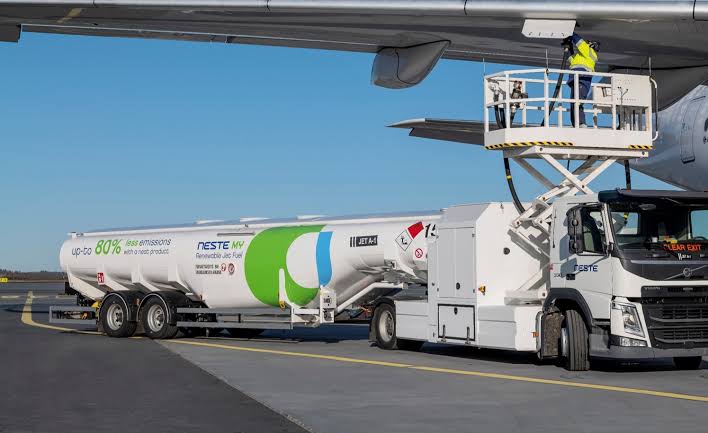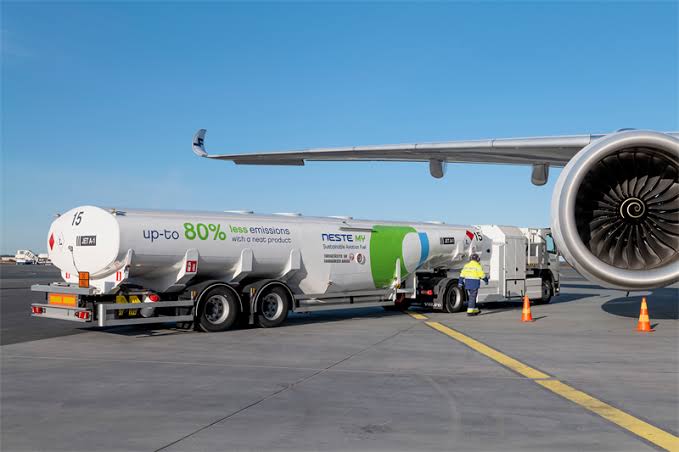 Ghana is taking a bold step toward greener skies with the launch of a comprehensive feasibility study on Sustainable Aviation Fuels (SAF), aimed at transforming the country’s aviation sector and reducing its carbon footprint in line with international climate commitments.
Ghana is taking a bold step toward greener skies with the launch of a comprehensive feasibility study on Sustainable Aviation Fuels (SAF), aimed at transforming the country’s aviation sector and reducing its carbon footprint in line with international climate commitments.
The initiative, announced by the Ministry of Transport in partnership with the Ghana Civil Aviation Authority (GCAA), comes as part of a broader national strategy to promote sustainable development and support the transition to clean energy in key economic sectors. The feasibility study is expected to begin in the third quarter of 2025 and will span approximately six to nine months.
 According to the Ministry, the study will evaluate the technical, economic, and environmental potential of producing and deploying SAF within Ghana. It will specifically examine the availability of feedstocks such as agricultural waste, used cooking oil, energy crops, and other bio-based materials that can be processed into aviation-grade fuel. The research will also assess existing infrastructure, potential production sites, and distribution logistics to determine the practicalities of a domestic SAF value chain.
According to the Ministry, the study will evaluate the technical, economic, and environmental potential of producing and deploying SAF within Ghana. It will specifically examine the availability of feedstocks such as agricultural waste, used cooking oil, energy crops, and other bio-based materials that can be processed into aviation-grade fuel. The research will also assess existing infrastructure, potential production sites, and distribution logistics to determine the practicalities of a domestic SAF value chain.
Transport Minister Kwaku Ofori Asiamah emphasized the importance of the study, stating, “This feasibility study marks a major step forward in Ghana’s commitment to a greener and more sustainable aviation industry. By exploring the potential of SAF, we aim to position Ghana as a regional hub for clean aviation technology and innovation in West Africa.”
 The move aligns with the International Civil Aviation Organization’s (ICAO) long-term goal of achieving net-zero carbon emissions by 2050, and supports Ghana’s obligations under the Paris Agreement. Industry analysts have applauded the announcement, noting that the global aviation sector is under increasing pressure to reduce its environmental impact, and SAF is widely regarded as one of the most viable short- to medium-term solutions.
The move aligns with the International Civil Aviation Organization’s (ICAO) long-term goal of achieving net-zero carbon emissions by 2050, and supports Ghana’s obligations under the Paris Agreement. Industry analysts have applauded the announcement, noting that the global aviation sector is under increasing pressure to reduce its environmental impact, and SAF is widely regarded as one of the most viable short- to medium-term solutions.
Should the study yield favorable results, officials say the next phase will involve pilot projects at major airports, including Kotoka International Airport in Accra. These trials would serve as a blueprint for broader adoption across the country’s aviation sector.
The findings of the study will play a crucial role in shaping Ghana’s national policy on sustainable aviation and could inform regional efforts across West Africa to transition toward cleaner, more climate-resilient air travel.

